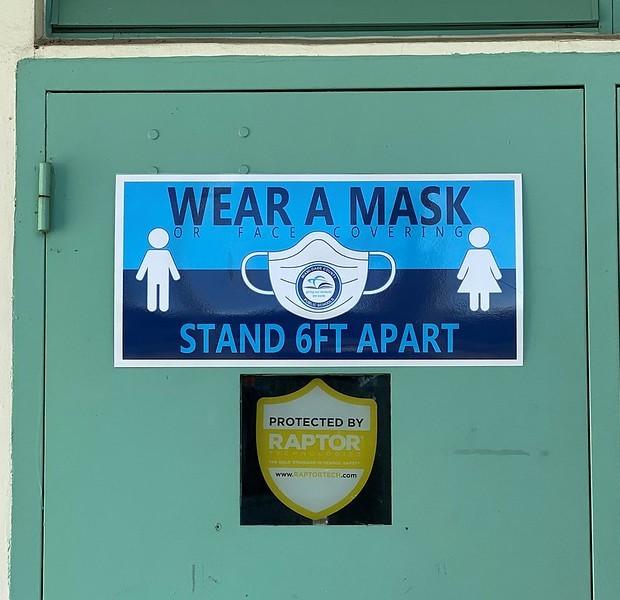The dramatic nationwide surge in COVID-19 cases and the resulting strain on hospital capacity is prompting mayors and governors across the country to implement new restrictions in an attempt to reduce the spread of the coronavirus.
In Michigan, Gov. Gretchen Whitmer announced yesterday that starting Nov 18, in-person instruction will be halted in the state's high schools and colleges, indoor dine-in service at restaurants and bars will be prohibited, and businesses such as movie theaters and casinos will be closed for the following 3 weeks. The statewide order also limits indoor gatherings to two households.
"We are at the precipice, and we need to take some action," Whitmer said at a press conference, the Detroit News reported.
Meanwhile, in the state that saw one of the first US outbreaks of the coronavirus back in March, Washington Gov. Jay Inslee ordered restaurants and bars to shutdown indoor service, closed movie theaters, gyms, and museums, and prohibited indoor gatherings with non-household members unless participants have quarantined for a week, the Seattle Times reported. The restrictions, which take effect tonight, will be in place for 4 weeks.
"A pandemic is raging in our state," Inslee said in a prepared statement. "Left unchecked, it will assuredly result in grossly overburdened hospitals and morgues; and keep people from obtaining routine but necessary medical treatment for non-COVID conditions."
Cases, hospitalizations continue climbing
The measures come after a weekend in which more than 300,000 new COVID cases were reported nationwide, and the total number of cases since the beginning the pandemic blew past 11 million. On Sunday, the United States reported 133,045 new cases, with 616 deaths, according to the Johns Hopkins COVID-19 dashboard.
There have now been 11,038,998 confirmed COVID-19 cases, and 246,224 deaths, according to the Johns Hopkins data. It took only 6 days to go from 10 million cases to 11 million cases.
Hospitalizations also continued their rapid ascent. Data from the COVID Tracking Project show that 69,993 Americans are currently hospitalized with COVID-19.
In Ohio, current hospitalizations are at an all-time high of 3,387, with 850 patients in intensive care units and 407 on ventilators, according to the Columbus Dispatch. The rise in infections in Ohio over the last month has promoted Gov. Mike DeWine to consider imposing a 10 pm to 6 am curfew on many businesses and closing restaurants, bars, and gyms.
Jodi Doering, a nurse from hard-hit South Dakota, told CNN that the situation in the state's hospitals is "like a movie where the credits never roll."
"Every hospital, every nurse, every doctor in this state is seeing the same things," she said. "These people get sick in the same way, you treat them in the same way, they die in the same way, and then you do it all over again."
The positivity rate over the last 14 days in South Dakota has climbed to 58.4%, and the state ranks among the worst in the nation in per capita hospitalizations.
In Illinois, which reported 11,632 new confirmed and probable cases today, hospitals are treating more patients with COVID-19 than they were during the first coronavirus wave in the spring.
"The situation we face now is increasingly dangerous for healthcare workers and hospital systems, especially, in every part of our state," Gov. JB Pritzker said during his daily coronavirus briefing on Nov 13, CBS Chicago reported.
Stay-at-home advisories for residents of Chicago and suburban Cook County went into effect today. Under the advisories, which have no enforcement mechanism, residents are being urged to leave home only for essential activities.
New Mexico is also re-imposing statewide COVID-19 restrictions today. Under the orders from Gov. Michelle Lujan Grisham and state health officials, New Mexicans are instructed to stay at home except for essential trips, on-site dining at restaurants is prohibited, and essential businesses must minimize staffing to the greatest extent possible. The order is effective through Nov 30.
Biden: Delayed transition could affect vaccine rollout
In other US developments:
- After this morning's announcement from Moderna that its COVID-19 vaccine was 94.5% effective in early phase 3 results, Department of Health and Human Services Secretary Alex Azar told CNBC that the Food and Drug Administration will move "as quickly as possible" to authorize emergency use of the Moderna and Pfizer-BioNTech vaccines, once the companies submit their applications. Azar said the goal is to enough have enough vaccine for every American that wants to get vaccinated by the second quarter of 2021.
- President-elect Joe Biden said during a press conference today that the biggest threat to his administration's transition is the lack of coordination with the Trump administration on a COVID-19 vaccine distribution plan. "More people may die, if we don't coordinate," Biden said. The Biden transition team has not had any contact yet with the White House coronavirus task force or Trump administration health officials because President Trump has not yet conceded the election and won't allow the transition process to begin.
- More than two dozen poll workers in Missouri and others in New York, Virginia, Indiana, and Iowa have tested positive for the coronavirus, the Associated Press reported. The infections cannot be definitively tied to polling places, but the infections are raising concerns about a spike in cases tied to election day.





















